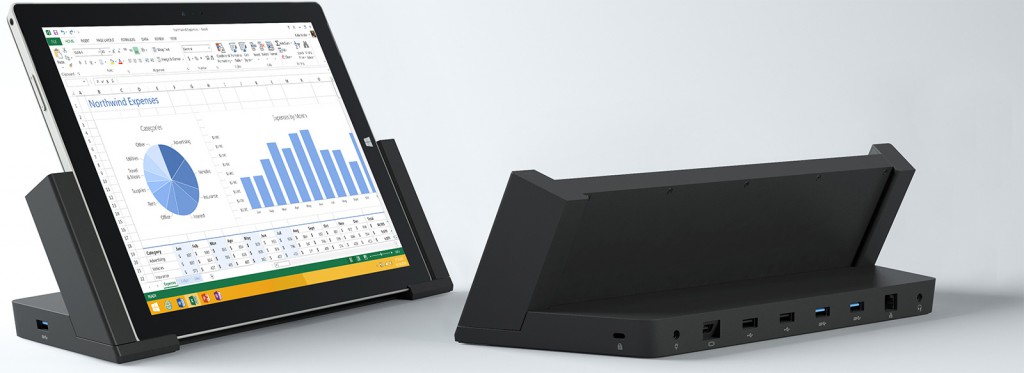Microsoft Corp. on Tuesday reiterated its commitment to its Surface Pro business tablets and said that its next-generation solutions of the kind, which are in development today, will be compatible with existing peripherals. The claim was made in order to persuade IT managers and CIO to consider Surface Pro as a solid solution for years to come. What Microsoft did not reveal is anything about the future of consumer version of Surface.
“We understand that for businesses to invest in Surface Pro 3, they need clarity on our commitment to hardware and accessories over time, so they can responsibly manage their investment choices,” said Brian Hall, general manager of Surface products at Microsoft.
Although the original Microsoft Surface tablets have never managed to become popular due to various reasons, the latest third-generation Surface Pro seems to be a thing done right. Surface Pro 3 serves as a full-powered business PC and a tablet, which makes it a rather unique solution for today as no other supplier ships anything like that. What is important is that while sales of the Surface Pro-series tablets/hybrids may be behind sales of Lenovo’s ThinkPads or HP’s EliteBooks, Microsoft will continue to evolve its solutions responsibly in order to maintain backwards compatibility and other valuable features.
“We have kept our roadmap plans close to the vest, as we needed to properly land new Surface products in a competitive market,” said Mr. Hall. “Now that we have begun to establish our place in the market, we are pleased to share that the [three types of] Surface Pro 3 accessories are designed with our product roadmap in mind and will be compatible with the next generation of the “Pro” line of Surface”
In particular, the general manager of the Surface product line at Microsoft revealed that all Surface Pro 3 type covers, infrastructure accessories (e.g., power adapters, Ethernet adapters and other) as well as the Surface Pro 3 docking station will be compatible with next-gen Surface Pro solutions.
While it is clear that Microsoft is committed to its Surface Pro line going forward, the software giant has not released a word about its consumer-class Surface tablets. At present they are based on Windows RT and ARM system-on-chips (SoCs), therefore they are not compatible with traditional Windows software (designed for x86 microprocessors), which is why they are not popular on the market. Going forward Microsoft plans to unify all of its operating systems and the Windows RT will be essentially gone. It is completely unclear what happens to Microsoft’s ARM-based tablets by then, especially in the light of the fact that Intel now offers very power-efficient x86 SoCs…
Discuss on our Facebook page, HERE.
KitGuru Says: The future of ARM-based Microsoft Surface tablets depends on compatibility with traditional software designed for Windows. While Microsoft Office and numerous “modern” apps compatible with both x86 and ARM may be enough for certain people, many consumers who buy Windows-based tablets want to run apps they are used to, which, in many cases, mean traditional programs for Windows.
 KitGuru KitGuru.net – Tech News | Hardware News | Hardware Reviews | IOS | Mobile | Gaming | Graphics Cards
KitGuru KitGuru.net – Tech News | Hardware News | Hardware Reviews | IOS | Mobile | Gaming | Graphics Cards



